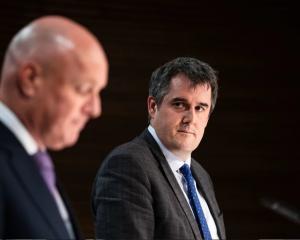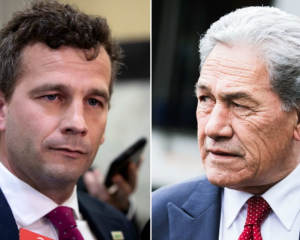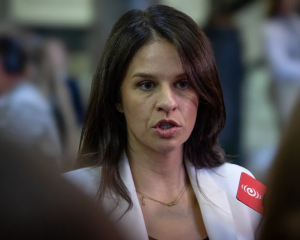
It has wide cross-party support, opposed only by Mr Peters' party and Labour.
The committee did not believe Mr Peters or his lawyer, Brian Henry, when they said Mr Peters found out about the 2005 donation only on July 18 this year.
A majority of the committee recommended Parliament formally censure Mr Peters, and that he be required to submit an accurate return to the registrar of pecuniary interests.
Mr Peters responded last night by saying the finding had "echoes of Zimbabwe" about it.
He thanked the members who applied themselves "fairly and neutrally" to the hearings.
"However, a majority lined up along political party lines and insisted I was guilty before and during the hearings."
The committee's recommendations fall short of the maximum penalties it could recommend - such as suspension or expulsion from Parliament, or even imprisonment.
But upholding a finding of contempt and casting such strong doubt on Mr Peters' word by his peers, is a damning penalty in itself.
The finding is backed by five of the seven parties represented, including the Greens, the Maori Party and United Future, and the broad cross-party support for the committee's finding - beyond only National and Act - will make it more difficult for Prime Minister Helen Clark to claim the committee was politically motivated.
Parliament will discuss the report late this afternoon is in what promises to be a highly charged debate.
Labour is expected to counter attacks by National on Mr Peters' honesty by questioning the honesty of National leader John Key, citing evidence he did not disclose how many TranzRail shares he once owned.
Speaker Margaret Wilson ordered the privileges committee inquiry after Mr Peters said on July 18 that Mr Henry had just told him Mr Glenn had donated to his legal costs.
That followed publication in The New Zealand Herald the week before of emails between Mr Glenn and his public relations consultant in New Zealand, asking if he should deny giving to New Zealand First when he had done so.
The committee's task was to determine whether Mr Peters should have declared the donation as a gift in the 2006 register of pecuniary interests.
To decide that, it also had to decide when he knew about it.
Mr Peters told the committee that Mr Henry, acting on the advice of an unnamed client, approached Mr Glenn in late 2005 to pay the Tauranga electoral petition's legal costs.
He said he never discussed money with Mr Glenn.
The committee decided on a narrow vote, opposed by Labour and New Zealand First - to invite Mr Glenn to appear.
His evidence, of phone and email records, strongly suggested that Mr Peters had discussed money with him.
Mr Peters and Mr Henry then both said they could not recall the conversation they had had just before Mr Henry sent details of his bank account to Mr Glenn.
A minority of the committee said they could not "dismiss the argument put forward by Mr Peters, which was that the conversation covered a number of topics but that money was not mentioned".
"Contempt" is a term which covers all sorts of conducts that Parliament deems worthy of censure.












